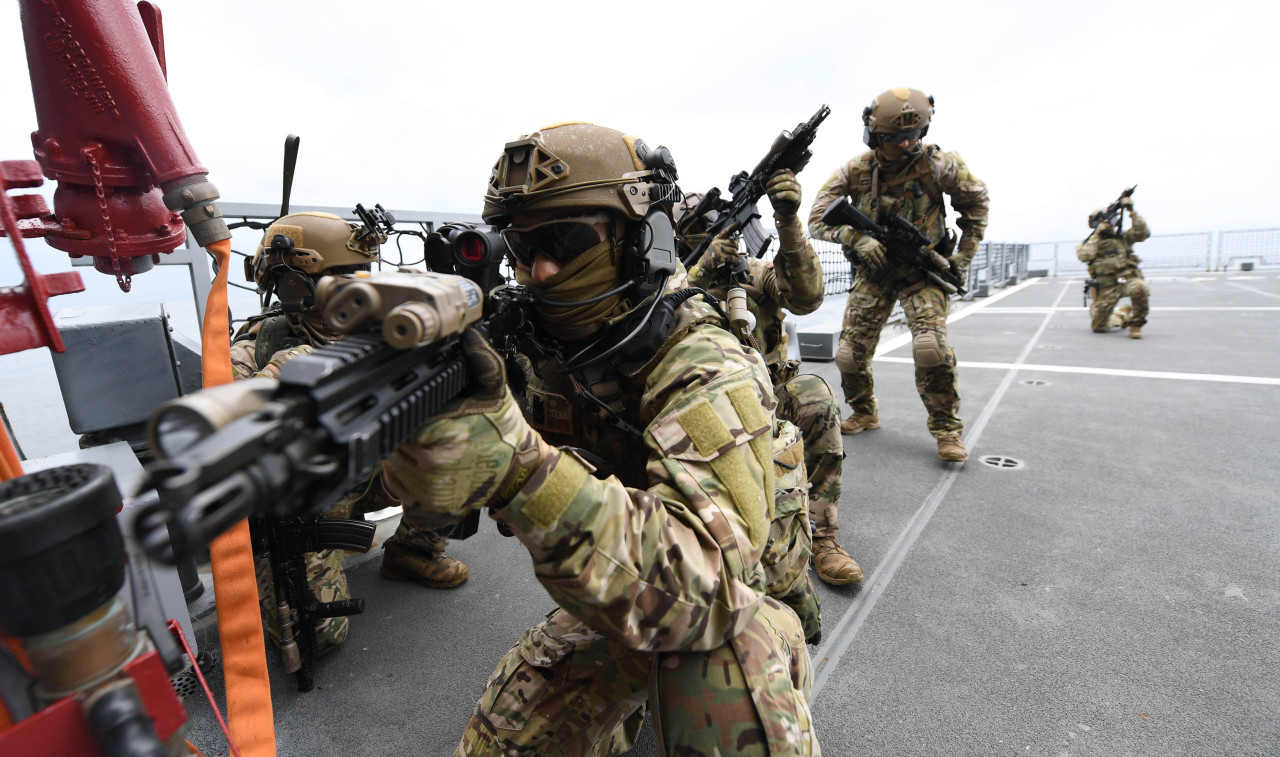Anti-piracy unit’s mission expanded to include Hormuz Strait near Iran
By Choi Si-youngPublished : Jan. 21, 2020 - 14:05

The Ministry of National Defense said Tuesday that its anti-piracy Cheonghae Unit will expand its operational range to cover the Strait of Hormuz, a narrow body of water between the Persian and Oman Gulf that sees millions of barrels of oil passing through it daily.
“Given the heightened tensions in the Middle East, we’ve decided to field the anti-piracy unit to cover those additional areas to protect our people and free passage of our ships,” the ministry said.
The unit, which conducts maritime security operations in Gulf of Aden off the coast of Yemen, will take on more responsibilities and cover new operational range three times larger than before for an indefinite period of time, until the situation around the region “gets better,” the ministry added.
Cheonghae will operate independently of the International Maritime Security Construct, a US-led multinational coalition, to defend the strait. Around 25,000 Korean nationals currently reside in the Middle East, and 70 percent of petroleum imported to Korea comes through Hormuz, according to the ministry.
Wang Geon, South Korea’s 4400-ton destroyer that houses around 300 soldiers including the special forces, will replace destroyer Kang Gam-chan to lead the operations, the ministry said, adding Cheonghae will dispatch two liaison officers to the coalition, which was established a year ago to protect global oil supply routes.
Washington welcomed Seoul’s decision, while Tehran said it understood it, the ministry said, noting disputes between Seoul and Washington over the how they should share the cost of maintaining American troops here did not affect the deployment decision. Some have speculated Seoul had felt pressure to do so.
The ministry explained that the deployment did not require additional parliamentary authorization because the parliament had already empowered the unit to expand its operational range beyond the initially approved perimeter, if it relates to the protection of Korean people in emergency.
By Choi Si-young (siyoungchoi@heraldcorp.com)
“Given the heightened tensions in the Middle East, we’ve decided to field the anti-piracy unit to cover those additional areas to protect our people and free passage of our ships,” the ministry said.
The unit, which conducts maritime security operations in Gulf of Aden off the coast of Yemen, will take on more responsibilities and cover new operational range three times larger than before for an indefinite period of time, until the situation around the region “gets better,” the ministry added.
Cheonghae will operate independently of the International Maritime Security Construct, a US-led multinational coalition, to defend the strait. Around 25,000 Korean nationals currently reside in the Middle East, and 70 percent of petroleum imported to Korea comes through Hormuz, according to the ministry.
Wang Geon, South Korea’s 4400-ton destroyer that houses around 300 soldiers including the special forces, will replace destroyer Kang Gam-chan to lead the operations, the ministry said, adding Cheonghae will dispatch two liaison officers to the coalition, which was established a year ago to protect global oil supply routes.
Washington welcomed Seoul’s decision, while Tehran said it understood it, the ministry said, noting disputes between Seoul and Washington over the how they should share the cost of maintaining American troops here did not affect the deployment decision. Some have speculated Seoul had felt pressure to do so.
The ministry explained that the deployment did not require additional parliamentary authorization because the parliament had already empowered the unit to expand its operational range beyond the initially approved perimeter, if it relates to the protection of Korean people in emergency.
By Choi Si-young (siyoungchoi@heraldcorp.com)












![[Today’s K-pop] BTS pop-up event to come to Seoul](http://res.heraldm.com/phpwas/restmb_idxmake.php?idx=644&simg=/content/image/2024/04/17/20240417050734_0.jpg&u=)





![[KH Explains] Hyundai's full hybrid edge to pay off amid slow transition to pure EVs](http://res.heraldm.com/phpwas/restmb_idxmake.php?idx=652&simg=/content/image/2024/04/18/20240418050645_0.jpg&u=20240419100350)

![[Today’s K-pop] Zico drops snippet of collaboration with Jennie](http://res.heraldm.com/phpwas/restmb_idxmake.php?idx=642&simg=/content/image/2024/04/18/20240418050702_0.jpg&u=)